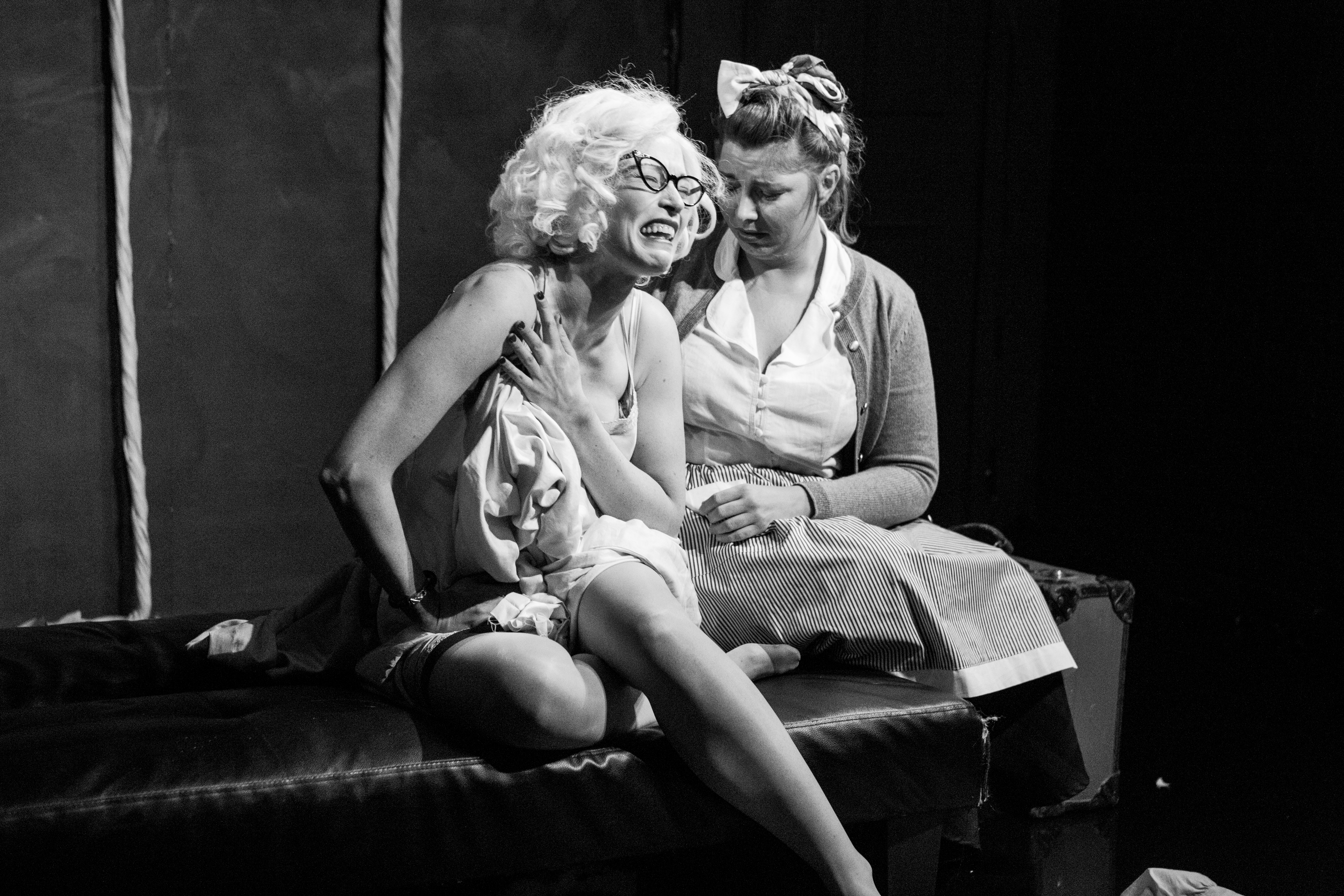
What is Acting?
February 15, 2019
Simon Furness takes us back to the basics with this weeks blog, exploring the definition of acting and what it actually means…
Webster’s Dictionary offers the following definition of acting: ‘the art or profession of performing the role of a character in a play, movie, etc’. Interestingly, the word ‘actor’ comes to us via the Greek word ‘hypokrites’ meaning ‘a stage player’. The Greek word for ‘actor’ is made up of two words that translate literally as ‘an interpreter from underneath’. This makes sense when we remember that Ancient Greek actors performed in masks.
The word ‘acting’ today implies action or activity of some kind, alone or in contact with others. This activity may be consciously executed in front of an assembled audience or may be carried out without the doer’s awareness. It may also be used pejoratively in the sense of pretence or deceit.
Watching a group of young men talking at an airport cafe table, I was struck by their ease and fluency with each other. It wouldn’t cross the mind of a casual eavesdropper that they were ‘acting’ in the sense of pretending or dissimulating. If they had become aware that they were being watched as on a stage or in front of a camera, we would presumably have observed them behaving more self consciously. In just the same way, employees at a supermarket go about their business with no notion of being watched by the public. But ask them to perform their tasks in front of an assembled audience, then again in all likelihood we would see self conscious behaviour. But is acting merely doing or performing a role efficiently in public. Is that all there is to it? People claim that they ‘act in life’ implying that there is no essential difference between what happens on a stage and what they are doing as they go about their lives. But is this really true of acting in other senses of the word?
If we consider the word in its theatrical context, then we must include the notion of a story or invented circumstances. If the actors are skilful in their storytelling, then we forget that we are watching an invention: we are watching in Sanford Meisner’s definition a group of people ‘living truthfully under imaginary circumstances’. The actors are carrying out their activities in an appropriate medium, there is an assembled audience present and there is a story which is being related. All these elements must be present in some form for us to consider acting in an artistic sense.
The story is an invention, a fantasy (and even ‘real life stories’ consist of a judicious selection of events) – it’s the skill and craft of the actor which succeeds in willing an audience to suspend its disbelief and accept the story as if it were true. Unlike in life, where events feel random, the events in a play or film are highly organised in terms of sequence and structure. Once the audience feels the story to be true, once it responds emotionally, then to all intents and purposes it is true. The actor plays a large part in this. Hemingway wrote that ‘all good books are alike in that the events they describe are truer than if they had really happened’. The same could be said about acting. Moreover, our finest actors, then and now, convince us because we the audience seem not to be aware of the mechanics of their craft whilst we watch them. It’s only afterwards that we might remark on how well they did their job.
The desire to watch actors tell a story, and possibly the desire to learn the craft of acting, seem to fulfil a basic human need. For what? Perhaps for connection, togetherness in place of separation and ‘otherness’. The origins of acting are unknown, though histories begin with the Greeks and our words ‘drama’ and ‘theatre’ have Greek origins. In any case, the urge to tell stories, to hear them in company, has always been apparent. Skilful acting turns the ‘lies’ into ‘truth’ so we experience the story with others and leave the theatre (the ‘place of seeing’), having shared in a common experience.
Find out what acting means to you in our foundation training. Courses run several times a month, with daytime, evening and weekend options. If the below dates aren’t suitable please contact us for further options.
Weekend: 23rd February – 18th March Saturdays and Sundays 10am – 2pm
Evening Intensive: 4th – 17th March 6 – 10pm (4th, 6th, 7th, 8th, 12th, 14th, 15th & 17th)

